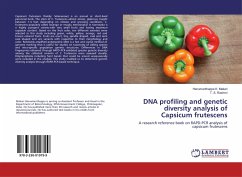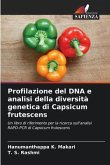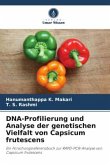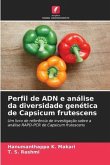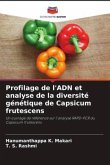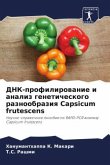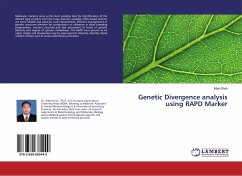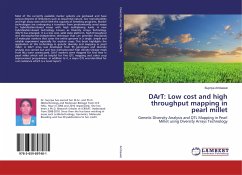Capsicum frutescens (Family: Solanaceae) is an annual or short-lived perennial herb. The stem of C. frutescens almost striate, glabrous, height between 1-4 feet depending on climate and growing conditions. C. frutescens popularly called 'lavanga or mugilu menasinakai' in Karnataka is a highly pungent variety with very small fruits and having maximum capsaicin content. Based on the fruit color, ten different varieties were selected in this study including green, white, yellow, orange, red and brown colored fruits. Fruits are erect, tiny, spindle shaped, oval and semi oval shaped and are variants with respective to their morphology and color. Randomly amplified polymorphic DNA is a fast and useful method of genome marking that is useful for studies on taxonomy of sibling species and intra-specific population genetic structures. Differences in DNA fingerprints obtained through RAPD-PCR exhibited greater genetic diversity among the collected variants of C. frutescens were assessed visually. Polymorphisms including faint bands that could be scored unequivocally were included in the analysis. This study enabled us to determine genetic diversity analysis through RAPD-PCR based technique.
Bitte wählen Sie Ihr Anliegen aus.
Rechnungen
Retourenschein anfordern
Bestellstatus
Storno

